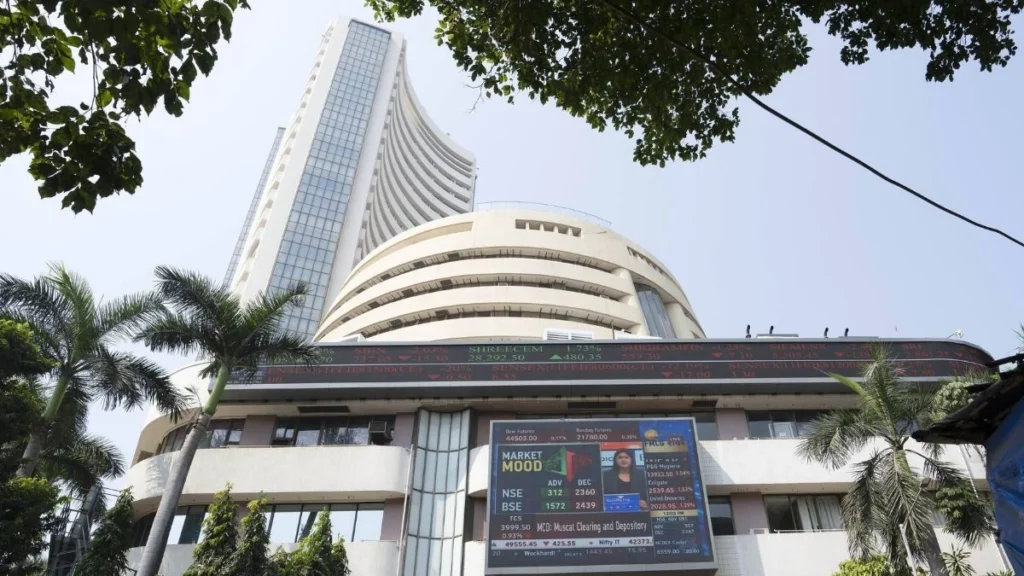The Indian stock market ended today’s trading sharply lower with the Nifty 50 index closing down to close at 24826.2, falling by about 175 points or 0.70% from yesterday’s close of 25001.2. This pullback in the market was largely due to investors taking profit after a strong rally we have seen over the last two weeks. This period of bullish sentiment, during which the Nifty rose roughly 4.1% in the wake of the Operation Sindoor ceasefire, had driven the market capitalization of BSE-listed firms to record highs, resulting in valuation multiples that many institutional players found excessive and contributed to today’s aggressive sell-off. Compounding the downward pressure was the disappointing Q4 earnings season, as Nifty 50 earnings growth came in below expectations at less than 6% year-on-year.

According to a new report from market analysts at Deutsche Bank, these elevated price-to-earnings ratios, currently around 21-22 times forward earnings, will require much greater corporate profitability in the coming months to remain justified. Further weighing on the cautious mood were cuts to earnings estimates for fiscal years 2026 and 2027.
Aside from domestic factors, global cues made a decisive impact in today’s market action. That’s not entirely unexpected, given the rising yield on the U.S. 10-year Treasury note, which has moved sharply upward to 4.48% from a long-time prevailing 4.25% back in late March. This spike in U.S. Treasury yields usually makes U.S. bonds comparatively more attractive to global investors, thereby triggering a capital outflow from emerging markets like India. Asian markets, for the most part, mirrored the softness both in terms of pricing and tone seen on Wall Street, with the MSCI Asia ex-Japan index witnessing a significant drop. For one, investor sentiment across the region continues to be negatively impacted by the recent news that the deadline for U.S.-EU trade negotiations was extended, holding off the introduction of contemplated tariffs.
Also check:- Sensex and Nifty Extend Gains on Positive Global Sentiment
Major Asian markets including China’s CSI300 and Shanghai Composite, Hong Kong’s Hang Seng, and Japan’s Nikkei 225 all closed in the red during their trading sessions. While the Nifty 50 index took the maximum hit owing to the selling pressure, the negative closing stood true for the broader markets. Sectoral performance was mixed, showing that some areas of the market were under much stronger selling pressure than others. The Nifty was seeing resistance at all-time high levels, which led to the correction seen in today’s trade. Immediate short-term support for the index comes in at 24700-24800 area. A decisive move below this support zone would likely open the door to more downside action. The 25050-25100 zone should provide immediate resistance.
Overall market sentiment seems to be one of skittishness, driven by a combination of domestic factors — earnings performance and valuation issues — and global factors, such as rising U.S. Treasury yields and lukewarm international market indicators. As we approach the second half of 2023, all eyes will be on the next round of economic data, continued earnings reports from the corporate sector, and global economic narrative, for hints as to where the market is headed next. Interaction between strong domestic earnings growth, ongoing global rate hikes, and geopolitical risks will no doubt be key in shaping the market’s direction over the next few weeks.

